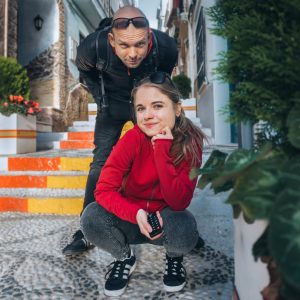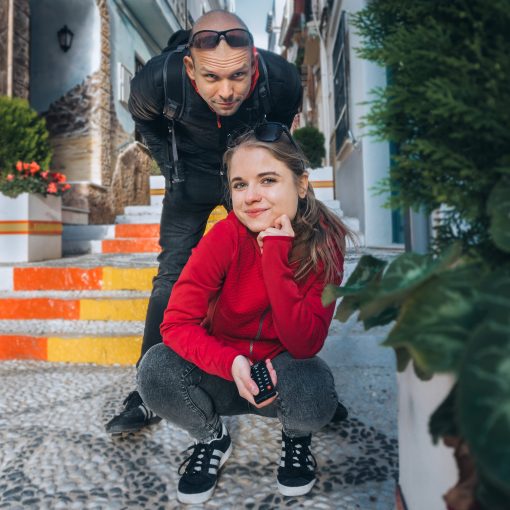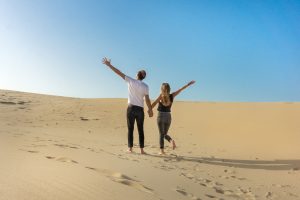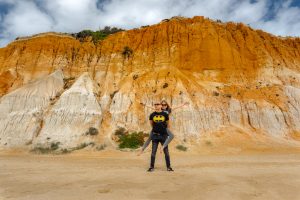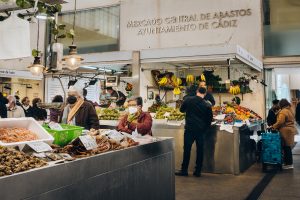Traveling is exciting most of the time and we certainly don’t have to convince you of that. But it’s not always sunshine and rainbows and some dangerous situations may get in our way unexpectedly. Thefts, scams, health emergencies, natural disasters, various accidents, cultural misunderstandings, threats with a weapon, intoxications, rapes, wars… Unfortunately, we could go on and on with things that might pose significant risks to one’s safety. More often than not you’d be fine while traveling but it’s good to know how to handle the unexpected.
Whether we want to think about it or not, we must be prepared for bad things that might happen, from minor mishaps to more serious situations. It’s essential to research your destination, be aware of potential risks, and take necessary precautions to ensure a safe and enjoyable travel experience. Being informed, staying alert, and having emergency plans can greatly help in overcoming and avoiding dangerous situations during your travels.
In this Travelers Talks episode, you’ll read real-life stories from travelers about the dangerous situations that happened to them and how they managed to handle them. You’ll also read tips and advice they have for you, to stay safe and which will help you navigate through potentially dangerous scenarios. At the end of the post, you’ll also find our take on that topic. Without further ado, let’s dive in!
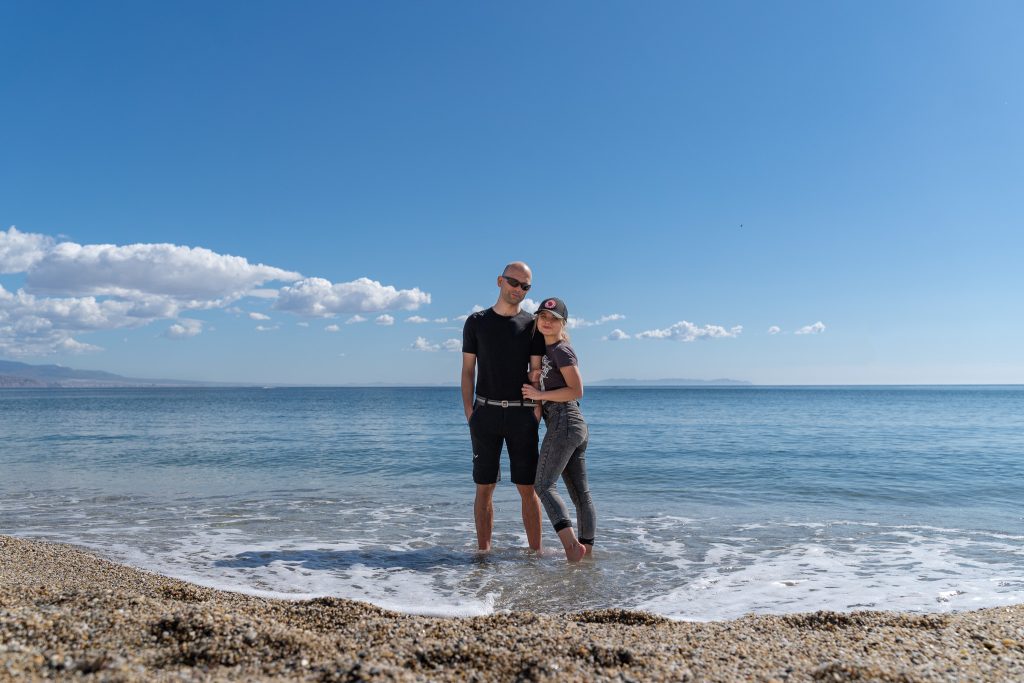
This website uses affiliate links thanks to which we may earn a commission for purchases you made at no additional cost to you. If you like the content, consider using those links to support us. Thank you!
Travelers Talks: How to handle dangerous situations while traveling?
Some time ago on Twitter and Facebook, we asked our fellow travelers for advice, and here it’s what we got in return.
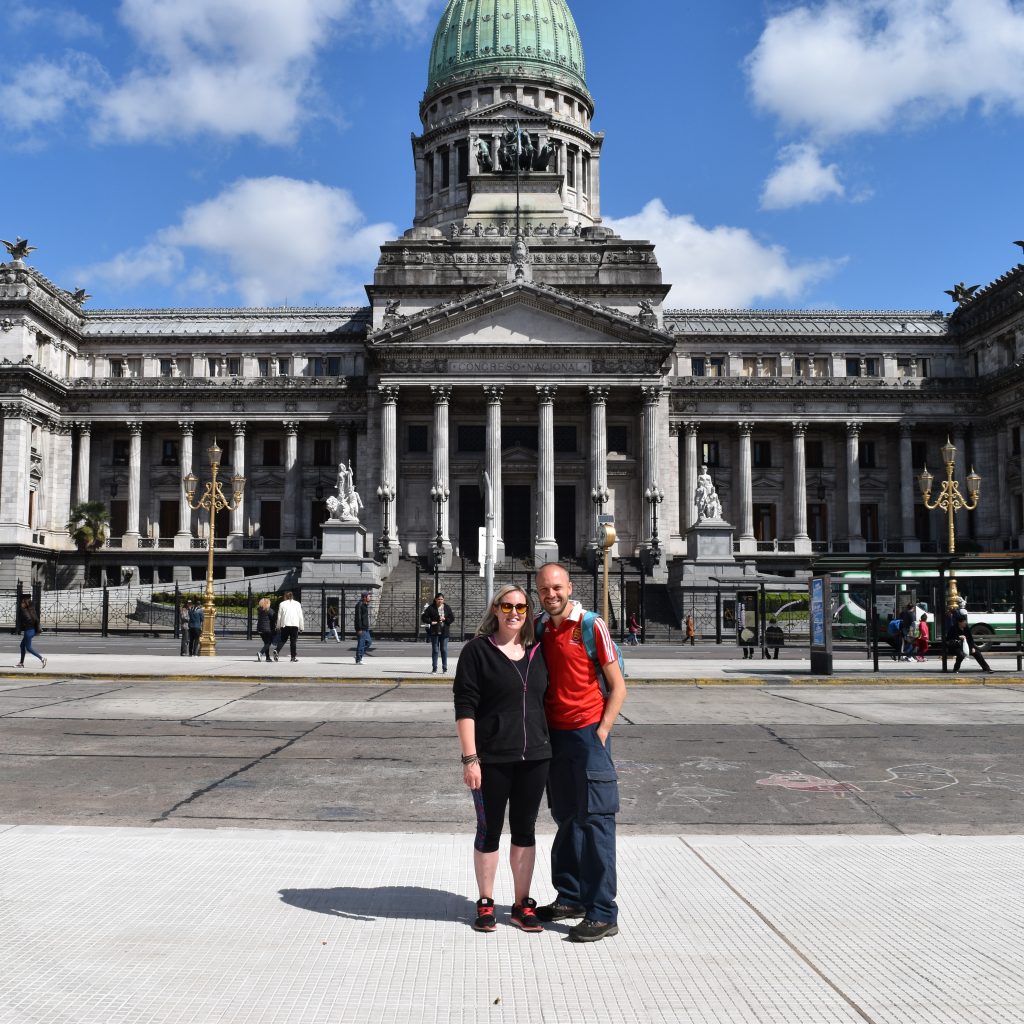
Alex from Career Gappers
Write a few words about yourself – who you are, what you do, and how you travel.
I am the co-creator of Career Gappers, a blog that is all about blending work and travel. It began with a focus on travel career breaks and sabbaticals after my wife Lisa and I (co-founder of the blog) took a year out of work to travel around the world.
Since the pandemic, we’ve taken more of an angle on blending work with travel by taking regular “workations”. We love to do this ourselves to make the most of our freedom to do our jobs remotely and travel frequently while also having a permanent home. We live in Lincolnshire in the UK, and we also run an award-nominated blog about our home area, called “Lincoln and Beyond”.
What was the most unsafe/dangerous situation that happened to you during your travels?
When we were on our travel career break, we spent several months journeying across South America. One day we arrived in Buenos Aires early in the morning after a long overnight bus from Mendoza. We were tired and our guard was down. Instead of taking a taxi to our hostel in the drizzling rain, we decided to walk. Soon after leaving the station, we became victims of one of the notorious distraction theft scams that afflict many travelers in different parts of the world.
Someone threw a substance on our bags that looked like bird poo – it was done discreetly so we didn’t see them do it. A kindly-seeming woman who was there told us she had seen it happen, and she offered to help us with a bottle of water she had with her. She got us to take off the small bags on our front, and momentarily turned us around, and in an instant our bags were gone, along with our passports, laptops, cameras, cash, artwork we had bought, and all sorts of other valuables.
How did you manage to overcome that situation?
First of all, we made a quick decision that we wouldn’t let it ruin our travels. We would keep going. And most of all, we made sure as a couple we didn’t blame each other for any aspect of what had happened.
We spent the next few weeks sorting out this situation, and thanks to a lot of support from family back home and generous people we met in Buenos Aires, we were able to get through it and continue traveling. First of all, we spent a day at the British Embassy in Buenos Aires. We actually met another traveler there who had been a victim of exactly the same crime!
We stayed at Rayuela Hostel in the city, and the people there were incredible. The manager gave us two nights’ free accommodation. On top of that, a friend back home, as an act of generosity, booked us into a hotel for two nights a week later to give us a little escape from the situation. Other than that we stayed in the hostel, and the staff there helped us with absolutely everything – one of the team even came with us to help us sort bank cards and collect international mail from various different offices around the city.
Until we were able to get our passports back, we obviously couldn’t travel outside of Argentina. So we made the most of that. We explored Buenos Aires for the extended time we were there, and we found cheap bus deals to go to Patagonia a month earlier than originally planned.
What safety tips can you give to others based on that experience?
One thing we did that saved our journey was that before we left home, we filled out passport application forms in case we ever found ourselves in a situation where we lost our passports. So, when the robbery happened, we had forms ready to go back home with passport photos too. We left these with a friend of ours back home who was able to just pick them up and submit them back in the UK, meaning we were able to get our passports much quicker.
Another action that helped hugely was that we had taken scans of our passports and other travel documents before we had started traveling and stored them online. If we hadn’t done this, we wouldn’t even have been able to travel within Argentina and use our credit cards, as we were often asked to show our passports to do these things.
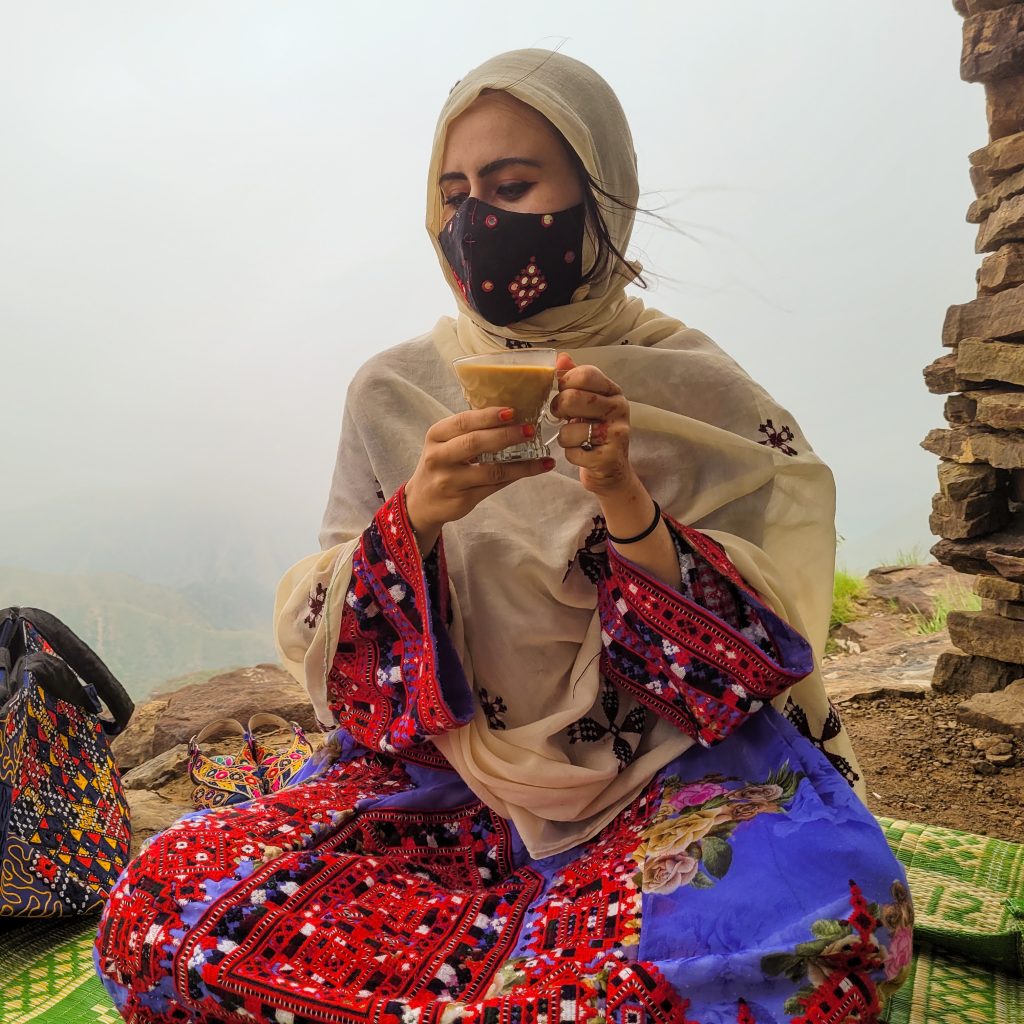
Arabela from The Spicy Travel Girl
Website | Instagram | Facebook
Write a few words about yourself – who you are, what you do and how you travel.
My name is Arabela and I’m the German-Peruvian-American author and travel blogger between The Spicy Travel Girl. My content focuses on adventurous solo female travel to lesser-visited parts of the world. While I am currently based in China, I spent almost two years living and traveling all across Pakistan, which allowed me to become well-acquainted with a rather difficult country for female travelers.
What was the most unsafe/dangerous situation that happened to you during your travels?
As a solo female traveler in Pakistan, I have unfortunately faced plenty of dangerous and uncomfortable situations, but my worst experience was by far what publicly became known as the Fort Munro Gang Rape Incident.
In short, I was raped and blackmailed by someone whom I considered a close friend, with the help of another “mutual friend”. I met the main culprit as a host on Couchsurfing and over the course of half a year we became close friends. He seemed educated and well-versed in women’s rights issues, and most importantly, he seemed to show no romantic intentions with me. He gradually earned all my trust over the various trips we took together, particularly in places that are hard to access for foreigners, as he promised to arrange these trips with the help of his connections in high places. By the time of the incident, I had already traveled with him three times, stayed at his home, and met all of his family. And according to his Couchsurfing profile, I was not the only female guest who had done so and all seemed to have great experiences with him.
The incident occurred in a beautiful but remote hill station in a tribal area for which foreigners require special permission to visit. Under this special protocol that the culprit claimed to have arranged for me, I was not allowed to roam around the area by myself and could not even get a hotel room as a single woman. Although I had great trust in this friend, this time his behavior was off and made me feel uncomfortable, but under the protocol I had no way to leave. Even after the horrific act happened and I tried to escape in the early morning hours, bus drivers refused to pick me up and shop owners did not take my pleas for help seriously as I was an unaccompanied, “hysterical” woman in a deeply conservative place. This allowed my rapist to catch up with me and I had no choice but to continue traveling with him until I reached the next city and I could finally break free.
Following my escape, my first priority was to get the culprits arrested. Little did I know that the most difficult part was still ahead of me. From dealing with rigid bureaucracy to corrupt law enforcement, even just registering a case was a long and draining journey that required the involvement of all kinds of high-level contacts. In fact, I was even receiving threats from all sides when the case made national headlines, and from one day to another, I had to leave the country. Since then, I have been tirelessly fighting a legal case from afar, draining all my savings, with the chances of achieving justice in this heavily biased system dwindling with every trial date.
How did you manage to overcome that situation?
During the incident, my body immediately went into fight or flight mode. I realized that I had no chance of physically fighting off someone as heavy as my rapist, so I decided to “comply” out of fear for my life. After it happened, I excused myself to the bathroom to take a shower. I opened the water but I did not shower, as much as I had wanted to, as that could destroy forensic evidence.
Instead, I used the time in the bathroom to send SOS messages to my loved ones. I used a foreign language as a code and made sure to send from a secondary account, so in case I received notifications the culprit would not understand. I stayed up all night while the culprit went to sleep and waited for the first sun rays to watch out of the window for public transportation to resume. When I saw the first bus, I quickly ran downstairs, already fully dressed, and tried to get on the bus while the culprit only woke up from the sound of the door.
After he caught up with me, I made up a story about a sudden school assignment that I had to finish, so he would not expect I was escaping from him. For the rest of the journey, I only said things that would appease him, which of course was very difficult psychologically but I had to do it for my safety. After we separated, I continued to reply to his messages until he was arrested, so he would not suspect me of reporting him and he would not escape.
What safety tips can you give to others based on that experience?
First of all, my message to every survivor of sexual assault: it’s NOT your fault. No matter how risky your behavior may seem in retrospect, it’s important to understand that it took time to get to this point. Trust is gained gradually and over time you may find yourself in circumstances you would not get from one day to another.
The perhaps biggest precautionary step is to never trust someone completely, no matter how friendly they may seem because some people are excellent liars. Also try to avoid situations where you as a woman have to entirely rely on a man to get around. For example, hiking in a remote area with only a male guide may be a dangerous situation.
Another piece of advice I’d like to give is to truly research the local customs when befriending or even dating someone in another country. I was convinced that my culprit and I were just buddies, and so seemed his family, but now in court my case is weak because friendships between opposite genders are rare in Pakistan, and in this way, local norms greatly skew the concept of consent across cultures. Similarly, rights you may take for granted at home may be nonexistent according to local laws.
It’s also important to notify your embassy as soon as possible after an unfortunate event as they can give advice for your safety, help find legal support in the country, and even negotiate with local authorities to ensure a swift and just investigation. Most embassies offer mailing lists in which you can enroll and you should also save the number of your local embassy in the country you are visiting on your phone.
Lastly, it’s very important to prioritize your mental health in the aftermath of a traumatic event. Some governments offer free counseling sessions to survivors of violent crimes, and there is absolutely no shame in taking advantage of these. It’s also important to slow down and give yourself time to heal. After this incident, I took an entire semester off from university and stayed with my mother, focusing on nothing but the legal case and psychological recovery.

Lara from The Best Travel Gifts
Website | Facebook | Pinterest
Write a few words about yourself – who you are, what you do, and how you travel.
Hi, my name is Lara and I’m the founder of The Best Travel Gifts! I’ve been a travel lover for as long as I can remember. After I graduated with my Master’s in Health Sciences in 2018, I decided to take my favorite thing to do full-time and travel around the world. I backpacked around Central America, Sri Lanka, and Australia, only to return to my home country (The Netherlands) in 2020 due to the pandemic.
I found a full-time job in the health sector, but in February 2022 I traded that job for the digital nomad lifestyle (as much as I hate the cliché word, I love the lifestyle). When I’m working, I base myself at a certain destination for longer periods of time, often through pet sitting to save on accommodation costs. And when I’m taking a well-deserved break, I still love to travel as a backpacker.
What was the most unsafe/dangerous situation that happened to you during your travels?
About four years ago, I went on a solo trip to Guatemala. During my stay at a hostel by Lake Atitlan, I discovered they had this huge bouncing blob floating on the lake. It’s a fun activity where one person jumps from a platform on one side of the blob, launching the person laying on the other side of the blob into the lake.
I have been staying at this hostel for three days already and though I really wanted to try the blob, I couldn’t muster up the courage. I have this insanely strong gut feeling and fear, which is really strange ’cause I usually really enjoy these things. I had bungee jumped and jumped off a cliff many times before, so it didn’t make sense to me.
That specific morning, I had packed my bags and was supposed to take a boat to the next town on the lake. I was having breakfast with two fellow travelers who were also heading to the next town on the lake. And we decided we couldn’t leave without experiencing the blob.
So I finally gathered all my courage and took the leap, hoping they would launch me afterward. Except, they never had a chance to jump.
As I landed on the blob, I immediately felt something was wrong with my back. I knew it wasn’t good. I could still feel and move my feet, which was a good sign. but being on a bouncy blob on a lake while in pain was definitely not ideal. I knew that any movement could potentially damage my spinal cord forever.
The hostel staff called for a doctor, but they couldn’t reach me on the blob, so they had to come up with a way to get me back to shore A few men worked together from various boats and canoes around the blob to get me on an improvised stretcher and bring me to the shore safely. I am still amazed by the fact that this actually worked. I didn’t fall in the water and I didn’t further damage my spine.
When the doctor arrived, it was quite obvious that I needed more advanced medical care. So they arranged an ambulance to take me to a hospital in the next city, which was about a 2.5-hour journey. Luckily, the two other travelers spoke fluent Spanish and were kind enough to join me in the ambulance.
At the hospital, an MRI scan revealed a fracture in my T12 vertebra. The doctors told me I needed surgery straight away to stabilize the fracture and prevent further damage.
Of course, my first reaction was that I was not going to have back surgery in Guatemala, so I consulted two doctors in my home country. But they told me I could only come home if they had a specific type of corset, which they didn’t.
And so I had back surgery in Guatemala, and to this day, I walk around with pins and rods in my back.
How did you manage to overcome that situation?
It’s a bit surreal to think about, but miraculously, everything went well. I ended up staying in Guatemala for about six more weeks to recover, and thankfully, my parents came over to support me during that time. I can’t express how grateful I am for the incredible and helpful people I was surrounded by throughout this whole event. They made a challenging situation much more manageable. And I am not sure where I would have been without the help from everyone who was there with me on that day.
Besides the help from the people locally, my travel insurance back home had been a lifesaver. From the ambulance and the surgery to my parents’ travel expenses, they accounted for everything. This took away a lot of the worries!
And as crazy as this will sound, what helped me the most to get through this event mentally, was faith. I’m not a religious person, but having faith that everything was going to be fine really helped me to stay calm and find a way to make the best of the situation. Obviously, this was not how I had planned my trip. But I am blessed enough to say that four years later, I am actually training for my third marathon!
What safety tips can you give to others based on that experience?
My tip, as cliché, as it may sound, is to trust your guts. Our intuition knows so much more than our brains can comprehend. If it doesn’t feel right, even if you can’t explain why, trust that feeling. Looking back at how insanely strong that gut feeling was, I probably should have known. This was not my “healthy” fear of heights that I felt when I bungee jumped, this was a completely different level of fear.
My second tip is to take a local sim card. I was silly enough to not have one, and the hospital’s emergency room didn’t have Wi-Fi, meaning that I could only stay in touch with my parents and the doctors at home through SMS. Not very effective. I had to rely on other people’s kindness to either take my phone to a place where there was Wi-Fi or to make a mobile hotspot for me. And again, I was surrounded by the most wonderful people who helped me out, but if I could do it again, I would absolutely take a local sim card with data.
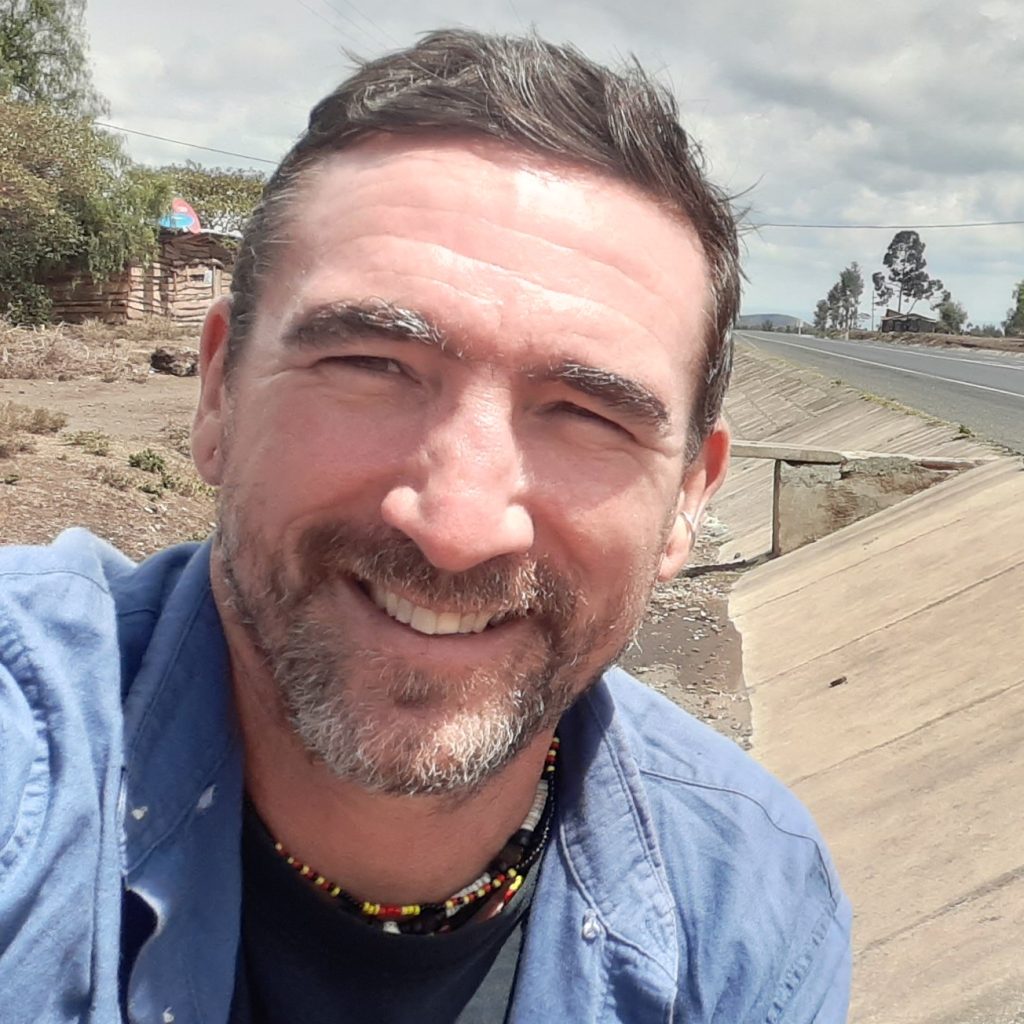
Stu from travelonastustring
Write a few words about yourself – who you are, what you do, and how you travel.
Hi, I’m Stu, from Melbourne, Australia. In the past 20 years, I have traveled, worked, and lived in more than 75 countries across all continents. I am an advocate of independent and solo travel, which I believe offers the greatest adventures and deepest connection to a place. Meanwhile, my work with humanitarian organizations has taken me to Africa, Asia, and all across Australia.
What was the most unsafe/dangerous situation that happened to you during your travels?
I am fortunate to have experienced many unsafe and dangerous situations in my travels. Yes, I did say fortunate. These experiences have provided me with some of my best travel stories and have shaped me as a person and traveler.
Firstly, as a naive young backpacker in 2006, I traveled through Cote d’Ivoire, Liberia, and Guinea as part of a broader journey through West Africa. In the course of these travels, I passed through cities and towns ravaged by war and conflict and experienced roadblocks, bag searches, and long delays. At night, gunshots echoed through the streets, and in the most dangerous places, I traveled with military escorts. The absence of tourism infrastructure meant that I sometimes slept on roadsides, in buses, and at one stage, spent several nights at a brothel.
The second most dangerous experience was in Bosnia when I was robbed while hitchhiking. On the way to Mostar, two men picked me up and threatened to stab me with rusty screwdrivers if I did not give them my phone and cash. Afterward, they left me stranded on the roadside in the middle of nowhere.
There have been other instances of pickpocketing, aggressive touts, and police harassment, however, I consider those minor inconveniences compared to my experiences in West Africa and Bosnia.
How did you manage to overcome that situation?
In West Africa, all the soldiers and police that I met took my safety seriously and considered the threats of kidnapping and robbery. Meanwhile, in Bosnia, the response from the police exceeded my expectations and even shadowed responses from police in my home country.
In Cote d’Ivoire, the military required me to check in daily and even drove me to the Liberian border. This was far outside their remit, and something I have grown to appreciate more and more over the years. Throughout all three countries in West Africa, I also found support from the local people and the kindness of strangers. The people I met, and traveled alongside, helped me with accommodation, translation, and safety tips, and in Guinea, took me to see a medicine man after some of my property was stolen.
In Bosnia, the robbery took place on a highway near Mostar. On several occasions, an interpreter traveled there all the way from Sarajevo, and together with the police, we watched tapes from traffic cameras and eventually identified the culprits. I left the country before any resolution yet remain in awe of their dedication and hard work.
What safety tips can you give to others based on that experience?
It may sound surprising, but I would recommend people continue to hitchhike, as I did, even after the robbery. Hitchhiking in Eastern Europe was an overwhelmingly positive experience, marked by only one bad day. The other people I rode with were incredibly generous and kind, and it was a unique way to experience that part of the world. In saying that, my biggest piece of advice is to trust your gut. I ignored my instinct in that instance and paid a price, albeit a relatively low one. So, if it doesn’t feel right, stop and choose another path.
As for West Africa, well, avoid traveling to conflict zones. Though if you really must, prepare yourself. Do some research on the conflict, understand the risks involved, and do not offer any opinions on it, remain neutral. Be prepared for sleep deprivation, long delays, and frustrations, witnessing injustices, and potentially losing some of your belongings. You may find support from the local population, though you should rely on them, as they are affected firsthand by the conflict, and as a traveler, you are rightly a distant consideration.
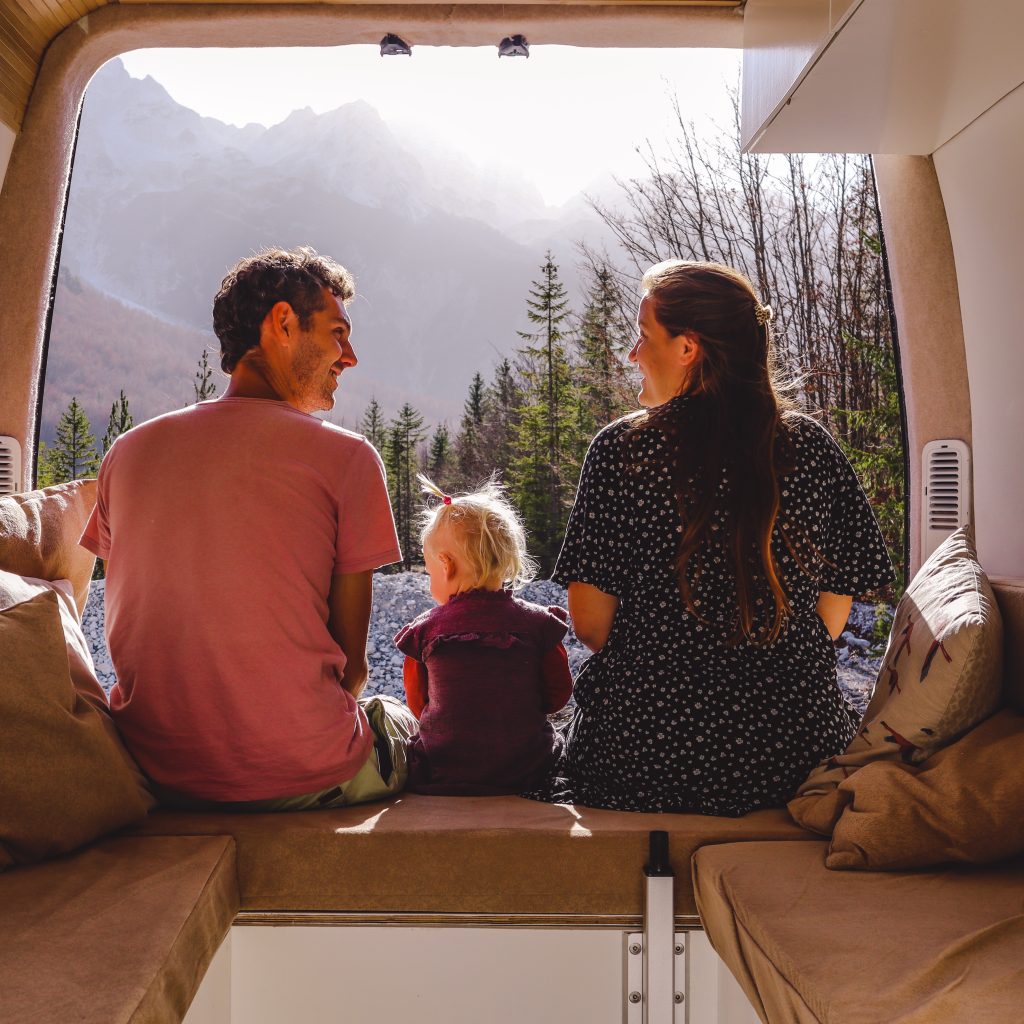
Maartje from Unieke Vakantieplekjes
Website | Instagram | Pinterest
Write a few words about yourself – who you are, what you do, and how you travel.
I am Maartje, a travel blogger from the Netherlands. With my partner Sebastiaan, I have been exploring the world for several years now. More recently, we have had the joy of traveling with our two children – a daughter born in 2021 and a baby boy who joined us in 2023. Since then, we usually travel by campervan. We actually converted two vans in the last few years and explored Europe with them.
What was the most unsafe/dangerous situation that happened to you during your travels?
During our stay in Tulum, Mexico, our two-month journey through Guatemala, Belize, and Mexico took an unfortunate turn. As we slept in our hotel room, an intruder silently entered and swiftly made off with a significant portion of our belongings, even taking items that were within arm’s reach on the nightstand.
My boyfriend woke up and scanned his bedside table, but he couldn’t find his phone. I noticed that my phone which I had left at my nightstand to charge was also gone. And so was our iPad. In a surge of adrenaline, we sprang out of bed and noticed how much of our stuff had been taken. Including our camera, filled with irreplaceable travel photos, an e-reader, and other seemingly insignificant but highly valued items had vanished. In the midst of our growing panic, I also realized e-passports were gone too.
How did you manage to overcome that situation?
We quickly got dressed and rushed down to the reception. Just as we arrived, the hotel gate was unlocked and the manager entered. In a state of panic and with limited Spanish, I communicated that everything had been taken. The manager promptly called the police, and the three of us immediately began searching the surrounding streets. Unfortunately, we couldn’t find any trace of our belongings.
The next hours were about contacting the police, reaching out to the embassy, and getting in touch with our banks. The hotel manager made multiple calls to the police, but they didn’t arrive until several hours later. During that time, we utilized the manager’s computer to contact the Dutch embassy in Mexico. We informed my mother back in the Netherlands about the incident and provided her with the necessary information to block our debit and credit cards through the respective banks.
When we travel, we usually carry different types of credit and debit cards to ensure we have options that are widely accepted. Due to these factors, we had both a Visa and an American Express credit card in addition to the debit card for our joint bank account. Furthermore, we had wisely hidden two extra debit cards in our backpacks for emergency situations like the one we were facing. We had to inform the different banks about the robbery, so the cards couldn’t be used. Fortunately, we still had the two extra debit cards to pay for the bus, food, etc.
The Dutch embassy in Mexico proved to be immensely helpful. Within an hour of contacting them, they reached out to us and immediately started working on securing replacement travel documents. They provided us with valuable information and assured us of their full assistance. Less than 24 hours later, we had an appointment at the German consulate in Cancun (as the Dutch consul was away on holiday) to obtain emergency travel documents. However, these documents were not considered valid for travel to the United States, which meant we couldn’t use our original flight tickets with a layover in the US. As a result, we had to book a new direct flight to Amsterdam in order to return home.
What safety tips can you give to others based on that experience?
When faced with a robbery like this, it may be difficult to prevent it entirely. In our situation, the room door was locked and it might have been an ‘inside job’ by someone working at the hotel. We ended up having bad luck. However, here are some safety tips to help you limit the damage in the event of a robbery:
Immediately contact the police and file a report. It’s crucial to obtain a copy of this police report, as it will probably be necessary for replacing your travel documents and making an insurance claim.
Act promptly to block your stolen credit and debit cards. We asked my mother to assist us by contacting all the banks and blocking the cards on our behalf.
Inform your embassy without delay if your passport is stolen. Reporting the theft to your embassy ensures that your passport is marked as missing, and they can assist you in obtaining new travel documents.
Before traveling, it’s a good practice to save the contact details of your embassy. Unfortunately, our phones were stolen too, but we were able to find the contact information online as well.
Notify your travel insurance promptly about the robbery. This will ensure that you receive the necessary assistance and coverage according to your policy.
Take immediate action to remotely delete your phone if possible. This prevents important information from falling into the wrong hands. In my case, I was able to do this with my telephone, but for Sebastiaan’s phone, we needed the physical device. Initially, we attempted to locate our phones and iPad using a ‘track your phone’ feature, but unfortunately, we didn’t have any success.
Change your passwords as a precautionary measure. Even though we had already deleted my phone, we also changed all our passwords, including those for social media accounts. Some websites offer the option to log out of specific devices, so take advantage of this feature.
Regularly back up your travel photos. Unfortunately, the Wi-Fi in Mexico wasn’t always reliable enough to back up all our photos, resulting in the loss of many precious memories. Consider using a service like Google Photos to automatically back up your photos once you are connected to a Wi-Fi network.
Ensure you have travel insurance that covers your destination. We had regular travel insurance and additional insurance through our American Express credit card, as we always book our flights using this card.
Keep an extra credit or debit card and copies of your passport in a separate location from your valuables. These copies proved to be essential for obtaining new emergency documents in our situation.

Elizabeth from Travel Gems and Mishaps
Write a few words about yourself – who you are, what you do, and how you travel.
I am from Ireland. I have traveled to 38 countries to date and have lived in 6. I made a lifestyle change in 2018, left my full-time employment in the US, and moved to Italy. I now plan to travel a lot, mainly solo, and work part-time. Photography and sports are two of my hobbies, so I regularly combine them by attending events and taking photographs.
What was the most unsafe/dangerous situation that happened to you during your travels?
I do like to travel off the beaten track and visit unique places. Usually, the locals are great, they may be inquisitive but will be respectful of you. Unfortunately, it’s just a fact of life that scams, robberies, and corruption occur everywhere in the world, regardless of the economic position of a country.
My most dangerous situation was when a friend and I drove over the border, from California into Mexico. My friend was driving and we got stopped by the police. They said that she had driven through a red light. They were very aggressive and we both felt nervous. Unfortunately, we had some issues with documentation which made the situation more difficult. Initially, we were stopped near a cafe and some people were watching everything.
But then the policemen made us drive to a secluded area. This made the situation more intense. Eventually, they asked for money, saying it was the “fine”. They told us if we didn’t pay the fine, we would have to go to the station with them and that it could take several days to be resolved. We paid it and got away as quickly as we could.
I have told his story to several American and Mexican friends and colleagues over the years and very few were surprised. Several people told me stories where the situation got out of hand. People questioned the reason for being stopped, refused to show documentation, and either refused to pay the “fine” or tried to bargain with them. I heard stories about people being assaulted, belongings taken from them, and of them being brought to the station and often kept in a cell for days. Therefore I think we got off very lightly!
How did you manage to overcome that situation?
We just answered the questions and tried not to antagonize them. We didn’t question why we were stopped and we showed them our documentation when they asked for it. We also did drive around the corner when we were told to do so. This made us the most nervous as we knew other people were watching. While we didn’t know if anyone would help us, it felt worse when we were alone and on a dark road.
The only time I didn’t follow directions was when they told me to stay in the car. I did get out and I walked over to stand beside my friend. I was really nervous about us getting separated. In hindsight, that might have been stupid, but I was always glad I did that. It was easier for me to be brave as most of the focus and aggression was directed at my friend as she was the driver. It was easier for me to observe them and thankfully they didn’t overreact when I got out of the car. She was starting to show emotion and fear, which is completely understandable as she was the one more at risk.
If you would like to read all the details about what happened, I wrote a short story about this and it’s on my blog.
What safety tips can you give to others based on that experience?
I don’t like confrontation in normal life and in my professional career, I would avoid it like the plague. I prefer to be quiet, let the other person do the talking, and then try to calm the situation. It is very difficult when the aggressor is a person in authority or someone who should be a protector. When you are traveling in an unfamiliar place, you may just have to go along with something you know is just unfair or wrong as that is the safest option. That may involve handing over your belongings or cash.
I was always glad I stayed with my friend at all times during the situation and think that ultimately helped her maintain her composure. They really didn’t seem like the type of people who were going to soften their approach if she had cried as their frustration level was increasing as the situation progressed.
I think it’s important to know when you are out of your depth and at risk and just to cut your losses. Your personal safety is more important than possessions and money!
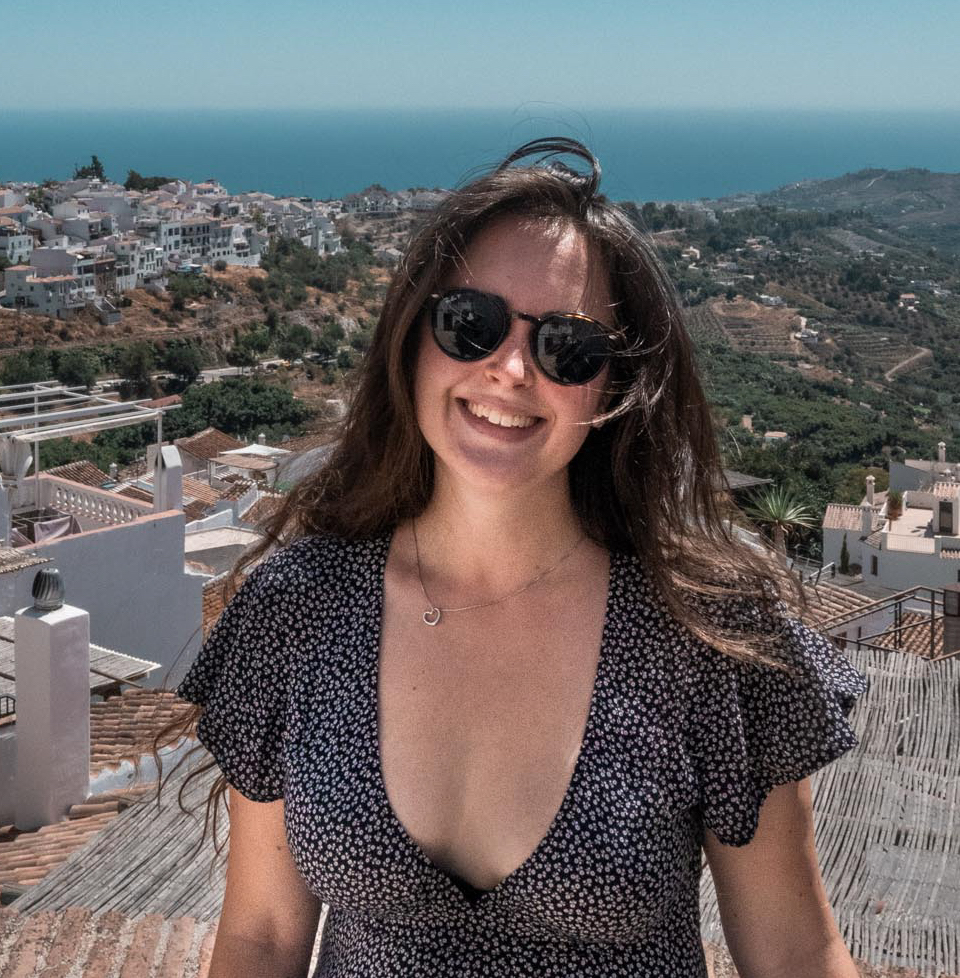
Victoria from My Australia Trip
Website | Instagram | Facebook
Write a few words about yourself – who you are, what you do, and how you travel.
Hi, I’m Victoria, a travel blogger and writer from Germany. I’ve been a digital nomad for several years now, but have made Bali my permanent home in recent times. I own a marketing agency here and manage several travel blogs and websites, including my main site Guide your Travel, as well as a niche Bali site, a marketing site, and My Australia Trip.
What was the most unsafe/dangerous situation that happened to you during your travels?
Quite a few years ago, I was living in a van in Australia and traveling around while picking up odd jobs. This was also around the time I first started working as a writer and there was always some adventure happening. My boyfriend and I ended up deciding to drive the Birdsville Track, a remote road through the Australian outback with our 1997 Toyota campervan that had no AC, couldn’t drive faster than 70kmh, and had already broken down twice on our trip.
We drove all the way from Townsville, via Mount Isa, to Birdsville, and then down to Adelaide on roads where sometimes it would take weeks until another car would pass. Occasionally the roads were closed due to flooding or damage, but we had no other choice than to drive them because heading back was too far with the amount of petrol we had with us. With limited water and only one spare tire which turned out to be the wrong one for our car, this situation could have gone very wrong very quickly.
How did you manage to overcome that situation?
I think at the time I wasn’t really aware of how dangerous this trip really was. When we finally made it back to civilization, we met a man who had driven the same route a few weeks back in a 4WD jeep and he said that he ended up having not one but two flat tires on the way. If that would have happened to us we would have had no way of going on. It can take weeks for someone else to drive by on these roads and there is nothing but desert around with no phone reception, water source, or anything. At the time, we just made sure to drive slowly and not use too much petrol or water, which ended up being just enough for the trip. Overthinking wouldn’t have helped and I’m grateful for being so naive back then.
What safety tips can you give to others based on that experience?
Definitely make sure to do your research and don’t go into a situation being too confident. We were just lucky, and our trip could have ended very badly. When driving through the desert, of course, make sure to bring a lot more water than you think you will need, and non-perishable food to last for a while. Enough petrol is also very important, as well as some basic repair tools which could help you fix something in an emergency situation.
Bring at least two spare tires and make sure that they’re actually the correct size for your car. Most importantly, always tell someone where you are going and what time you expect to arrive. Since there is no cell phone contact it can be difficult to communicate and you want to make sure that help will arrive should something go wrong.
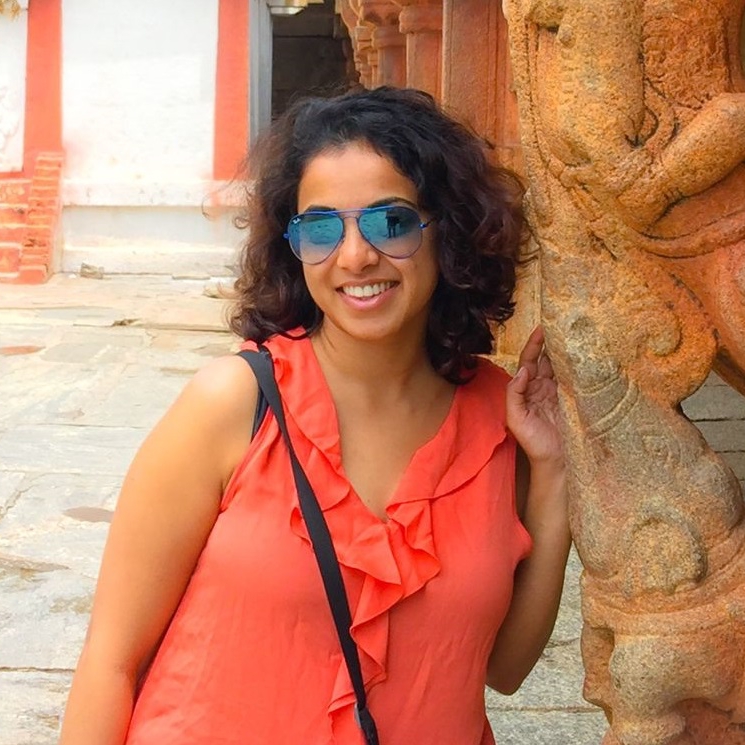
Raksha from Solopassport
Write a few words about yourself – who you are, what you do, and how you travel.
My name is Raksha Nagaraj and I am an adventurous solo female traveler. I have been to more than 45 countries so far in 6 continents and most of them have been solo. Based in Bangalore (India) and Sydney (Australia), I am a travel blogger and vlogger who promotes solo female traveling across the world.
What was the most unsafe/dangerous situation that happened to you during your travels?
As I am an avid traveler, over the years there have been a few situations where I have been in that were unsafe.
One of them was during my first travel to Fiji where I was traveling with my mother. I enjoy visiting local villages and learning about their culture and hence I spoke to one of the local taxi drivers for him to take us to one of the villages. For that village tour, the taxi driver introduced us to a tribal lady (villager). At first, she took us around her village showing us all the houses and giving us the history of Fiji to finally land inside a church. As it was an afternoon, there was nobody inside the church except for my mother, me, and the lady. She took advantage of the situation and started demanding us some dollars. She had threatened not to allow us outside the church if we did not give her the money required. It was very scary as we did not know the local language of Fijan and we were tourists.
Another situation was when I had taken an overnight bus to Moldova from Romania. The bus was supposed to reach the city in the morning at around 5:30 AM. But that night the bus had reached very early and I had landed in Moldova at 3 AM. The bus stop was very dark and had got isolated in no time. As it was a sudden plan, I had nowhere to go and knew no one. The European SIM card had stopped working as well and I did not have any network let alone the internet.
How did you manage to overcome that situation?
In my first situation in Fiji, I had to give the lady money to get out of the situation. We had around $60 in cash and handed her all the money. After getting out of the village, I told the taxi driver about this entire scenario and even though he sympathized, he said he could not do anything at that moment but had promised he would not take any other tourist to the village.
In my second situation, luckily I found a local taxi driver who helped me find a hostel at that time of the hour. Even though there were language barriers, we somehow managed to communicate with each other. And I trusted my instinct and got inside the taxi.
What safety tips can you give to others based on that experience?
When you are traveling in a country that you are new to and have not explored, it is always best to either go with a trusted tour agency or with the accommodation staff’s recommendations for experiencing the local cultures. There are times when I have interacted with locals and have had the best experiences based on their recommendations as well. But to be safe, it is advisable to read and seek suggestions from people who are in the local travel industry.
When you are traveling solo, always ensure to have mobile applications that work offline such as offline maps, and Google translate. These help a lot when you are in an unknown country, especially in a country that does not speak the language you speak. Also, keep important numbers written down somewhere as a hard copy.
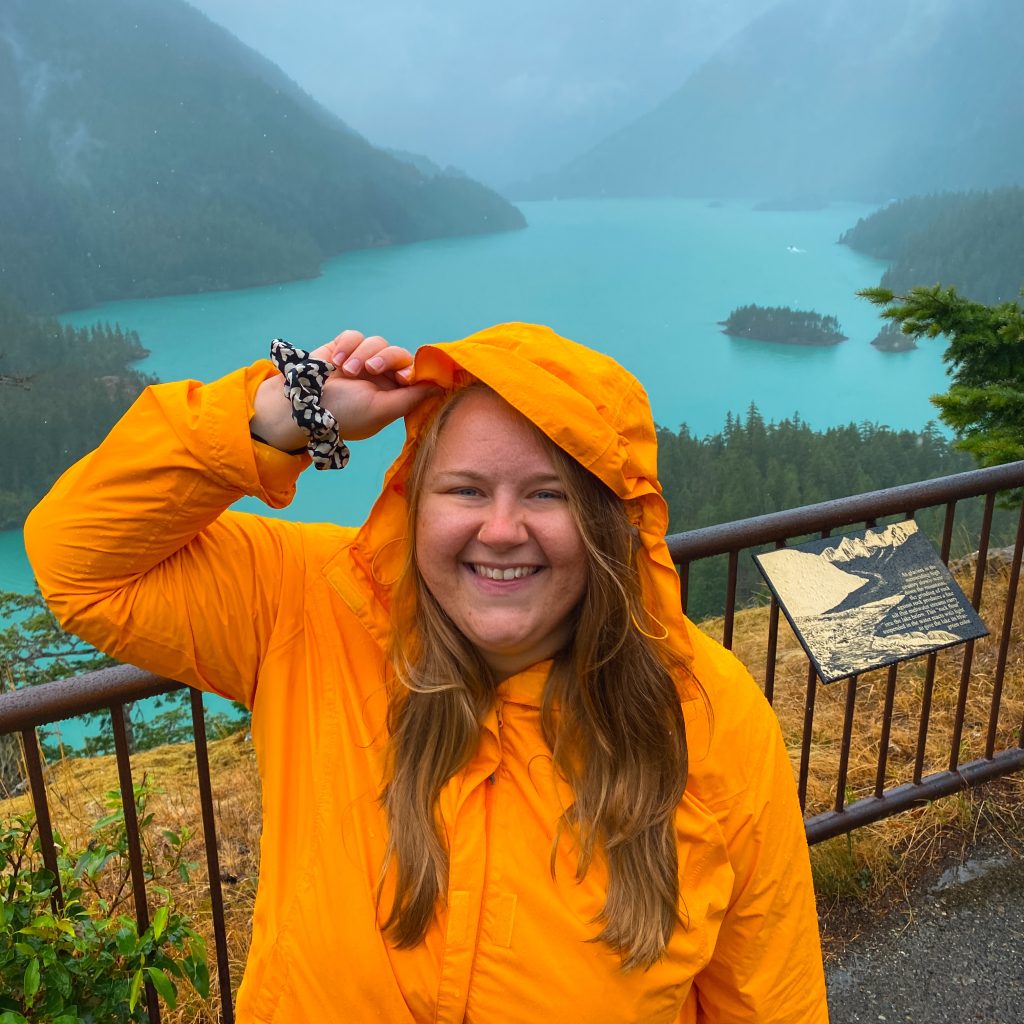
Michele from Adventures Abound
Write a few words about yourself – who you are, what you do, and how you travel.
My name is Michele and I am the adventurous traveler behind the Adventures Abound travel blog. I focus on outdoor adventures, budget and local travel, and sustainability in the Americas.
What was the most unsafe/dangerous situation that happened to you during your travels?
I was traveling through Colombia with some fellow coworkers on a break. We were in the mountain town of Manizales and they decided to hike a glacier but I was unable to join. They were gone for a full day so I decided to walk around the town alone – essentially as a solo female traveler for the day. As I reached the edge of the town, I decided to wait for the bus back across town to my hostel. I had my purse and my DSLR camera, and being in a non-touristy area had me and my blonde hair sticking out like a sore thumb.
As I always do to avoid getting lost, I asked several people where the bus stop was. When I got there, I confirmed with a man working a sort-of disheveled fruit stand that I was in the right spot. The bus was taking a while, and he walked over to me uncomfortably close holding his machete which made me immediately nervous.
How did you manage to overcome that situation?
I made sure to answer his questions vaguely and not let it be so known that I was a solo female with no friends (or men) nearby. I do speak Spanish so I was able to communicate. I hid my engagement ring so as not to look like a target, and had my camera put away in my bag. I also got a local SIM card when I entered Colombia so I used it to contact a friend in the country as well as my fiancé just to make sure someone knew what was happening. Maybe he didn’t have nefarious intentions but I wasn’t trying to risk it.
Eventually, the bus came and I was able to get away, but looking back it was definitely a scary situation to be alone with a man holding a machete on a quiet street in a foreign country.
What safety tips can you give to others based on that experience?
Try to avoid flashing anything that might make you a target such as expensive items. Learn some of the language of the country you are visiting, especially if you plan to explore beyond tourist hubs. Be aware of your surroundings. It’s okay to be friendly to strangers but don’t make it known if you are completely alone. Always let someone know where you are, and have a way to communicate.

Rachel from Rachel’s Ruminations
Website | Facebook | Instagram
Write a few words about yourself – who you are, what you do, and how you travel.
I’m a full-time travel blogger. I write primarily about independent travel to historical sites, and I particularly like to visit UNESCO sites. I grew up in the US, so I write in English, but my home is in the Netherlands. My husband will retire soon and we hope to do more independent travel, but more slowly, staying for a month or more in each place and really getting to know it.
What was the most unsafe/dangerous situation that happened to you during your travels?
The one that comes to mind is the time we – my husband, our two children, and I – were trying to travel from Aqaba, Jordan, to Petra. It’s about a 3.5h drive, and we intended to rent a car in Aqaba and drive there ourselves.
After crossing the border into Aqaba from Israel, we proceeded, dragging our wheeled suitcases, to look for a rental car agency. We found one easily enough, but they didn’t have any cars. Strange: a car agency with no cars. We went to the next one, just down the block, and they said the same. And the next one and the next one. There were no cars available.
By the fourth or fifth agency, a cab was following us down the street, just waiting for us to give up, which we did. After stopping for lunch, we hailed a cab, then after much negotiating, we piled in along with our luggage and started the drive.
The road between Aqaba and Petra is good: a wide, new highway through the desert. It was warm, but the air conditioning was on low, the road was smooth, and the scenery got dull pretty quickly … and I began to nod off, as did both kids.
I jerked awake to the sound of squealing tires and the feel of the car braking and skidding at the same time. I had only time to think about all the ways this could end badly when the driver regained control of the car.
The driver claimed he’d slid on oil from a car on the road. My husband, sitting next to the driver in the front seat, said otherwise. He had fortunately stayed awake and, seeing the driver nodding off, had grabbed the wheel to keep the car on the road.
How did you manage to overcome that situation?
My husband overcame the situation; I didn’t. He was aware enough of the driver’s fatigue to decide to stay awake, and that decision may very well have saved our lives. We’ve avoided similar situations since then successfully but being aware of this possibility: drivers are only human, and if they’re driving a long distance they can get sleepy too.
What safety tips can you give to others based on that experience?
First of all, stay awake on long taxi rides and chat with the taxi driver to keep them awake. Whenever trains are available, take them instead. Or rent a car yourself instead of taking a cab, if a car absolutely has to be used. Reserve a car ahead to avoid being stuck without one
Be sensible enough to take rest stops or do whatever you have to do not to fall asleep at the wheel. Take turns driving, stop for the night, and consume caffeine if you absolutely have to go on. Wear seatbelts, even for short rides. We weren’t, and that would have made this accident even more deadly.
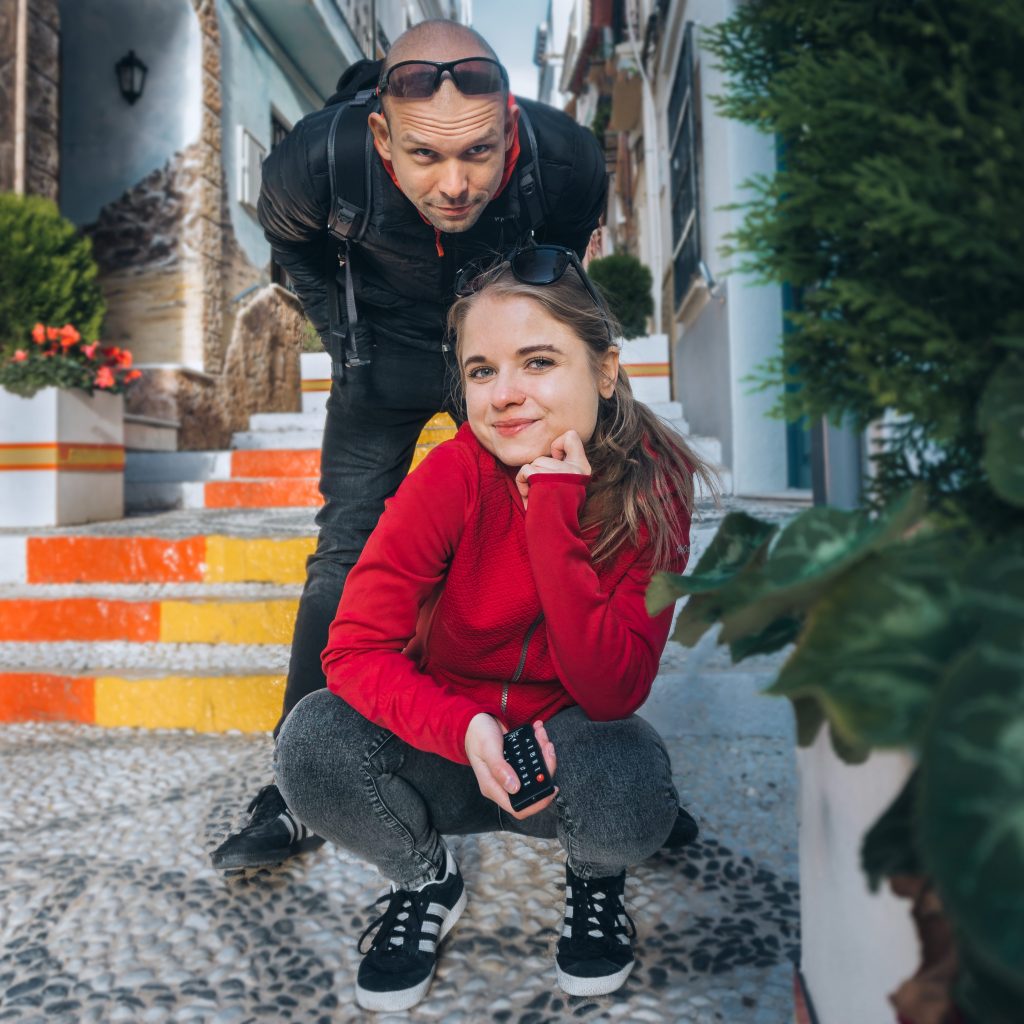
How did we overcome dangerous situations while traveling?
Thankfully during our 10+ years of traveling, including 2+ years of traveling long-term, nothing really dangerous has happened to us. Once we thought our car was stolen but it turned out that… we forgot where we parked it! Not so an unsafe situation but at the time it gave us a bit of a heart attack. Do you wonder how it might be that nothing bad has happened so far? Partially it could be because of luck and precautions but we think mainly because of who we are – we both are quiet, toned down, and cautious by nature.
Here’s what we do and thus these are our tips for you. We do proper research about the destination so that we know what potential threats and scams to expect. We’re aware of our surroundings (especially in crowded places) and keep our valuables as safe as we can. For example, we like our Pacsafe backpack, which has plenty of safety features built in and is one additional line of protection against theft. We respect places, traditions, and other people to avoid misunderstandings. Usually, we don’t go anywhere at night, especially by foot and to/through places we don’t know.
What’s probably most important – we just trust our instincts and if something feels sketchy we simply avoid it. Also, for urgent health emergencies, we have travel insurance (check out World Nomads or SafetyWing) and in case of theft, we keep copies of important documents and emergency contacts in a few places.
How to handle dangerous situations while traveling? – Summing up
Uff, it’s finally the end of scaring you! First of all, however scary and discouraging this Travelers Talks episode might sound – remember that overall the world is not a bad place and most people don’t want to hurt you. But dangerous situations might happen wherever you are and you should always be prepared for them. Sometimes we’re just in the wrong place at the wrong time.
As you can see now, various unsafe situations and challenges can arise during traveling – from minor accidents to more serious life-threatening situations. The best we all can do is to be aware of them, try to avoid them, and be prepared for them. We really hope that nothing bad will happen to you and all your travels will be safe.
If something dangerous has happened to you already, feel free to share your story and your tips in the comment section below so we can learn from each other.
Head to Twitter if you’re interested in even more stories…
What's the most dangerous/unsafe situation that happened to you while traveling? 🆘🤔
— Happy Little Traveler | Sonia & Wojtek (@happylittletrav) July 26, 2023
Interested in more insigths from fellow travelers?
You may also be interested in these posts:- Secrets Behind Successful Travelers
- How To Take Care Of Health While Traveling?
- How To Decide Where To Go For The Next Trip?
- What Can You Learn From Travel Mistakes?
- How To Find The Travel Style?
- How To Get The Best Travel Experience On A Limited Budget?
- How To Overcome Travel Fears & Anxieties?
- How To Become A Traveler?
- How To Make Money While Traveling?
- How To Make Money For Traveling?
- How Traveling Can Change Life?
